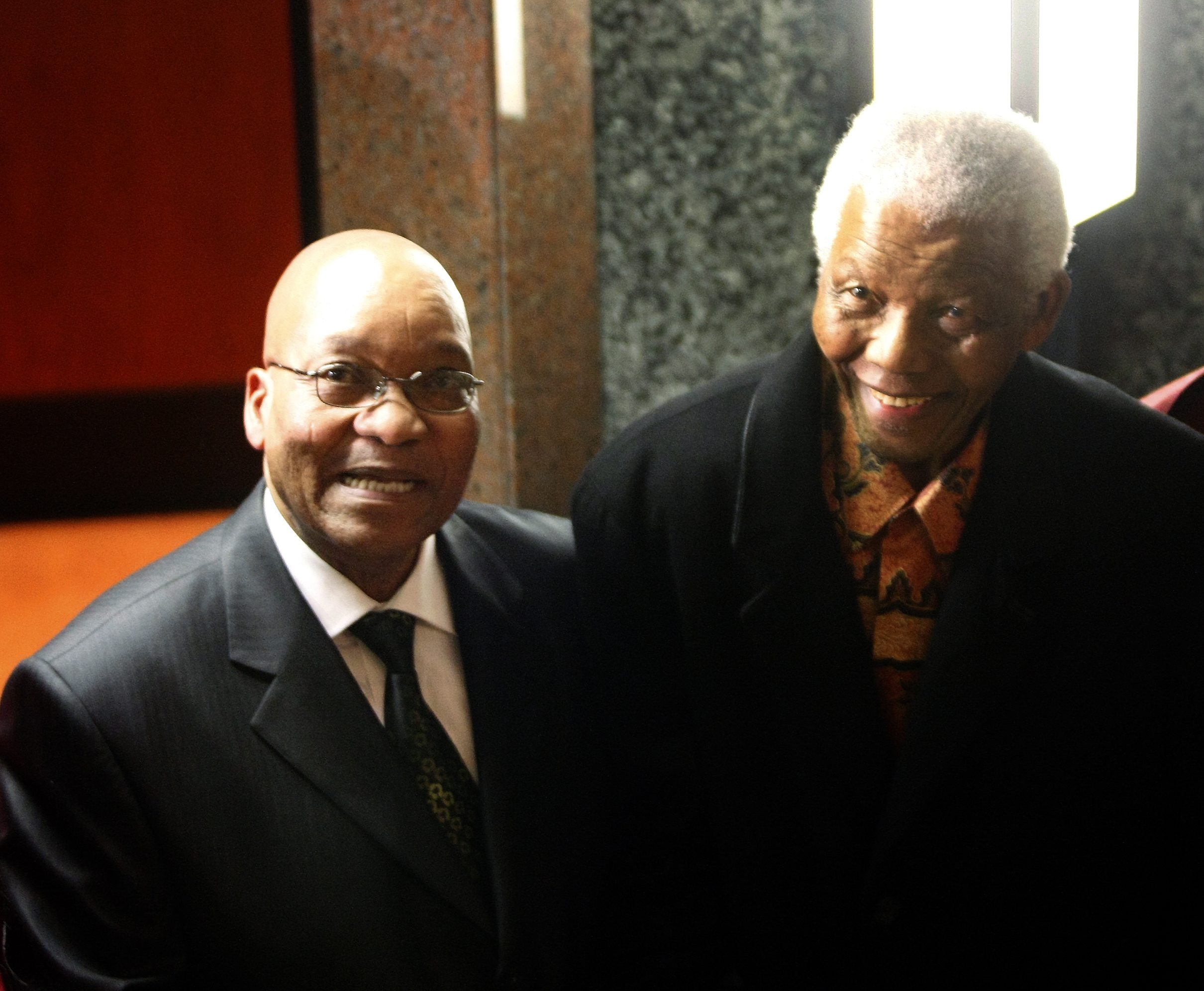
Students from universities and colleges in and around Washington rally to demonstrate their support of the Palestinian people on the campus of George Washington University on May 02, 2024 in Washington, DC. Pro-Palestinian encampments have sprung up at college campuses around the country with some protestors calling for schools to divest from Israeli interests amid the ongoing war in Gaza. (Photo by Chip Somodevilla/Getty Images)
It’s difficult to forget how, when university campuses were in the throes of the biggest protests since 1994, Higher Education Minister Blade Nzimande quipped: “If the students don’t accept this, we’ll start our own movement. Students must fall.”
Despite the minister’s attempt to make light of the situation, students were serious. The tFall movement induced political rupture, giving voice to widespread disillusionment with the ANC-led government, and springing another mass movement calling for then president Jacob Zuma’s resignation.
Today a similar movement is under way, this time at universities in the United States, where students are showing their ire over the unfolding devastation in Gaza. This week, hundreds of protesters were arrested after they staged sit-ins calling for their universities to divest from Israel, which faces a charge of genocide.
The scenes are reminiscent of the protests that gripped US universities during the Vietnam War in the 1960s and when students called on institutions to divest from apartheid South Africa in the 1970s and 1980s.
Like South Africa, the US is gearing up for a watershed election, during which incumbent Joe Biden will go up against Donald Trump — who, rather unexpectedly, is riding a wave created by college-educated voters.
If Trump’s win back in 2016 exposed the pitfalls of ignoring blue-collar workers, the November elections may be instructive of the consequences of losing the student vote.
Biden is already seen as having made a fatal blunder by offering such strong support to Israel, despite significant pushback from US voters. Although Biden cinched the primaries, hundreds of thousands of voters marked their ballots “uncommitted” in protest over his administration’s handling of Israel’s war on Gaza.
There was an unprecedented turnout from student voters in the 2020 elections, which won Biden the presidency over Trump.
An Institute for Democracy & Higher Education report on this rise in student ballots noted that although the pandemic created an extra hurdle for voters, the social movements that sprung up at the time made the 2020 elections all the more important.
“Through all of this, we also witnessed an urgent social movement: student outrage over the horrifying death of George Floyd and others targeted because of their skin colour; divisive, discriminatory rhetoric and actions of the prior administration; and apathetic political leaders brushing aside issues students care about such as global climate change and systemic inequality. Activism begets voting,” the report noted.
Since then, Biden has sought to nurture this base, introducing plans to cancel college debt, signalling his acceptance of something South African politicians have recognised for some time now — that students can make, or break, presidents.



 2 weeks ago
115
2 weeks ago
115

















